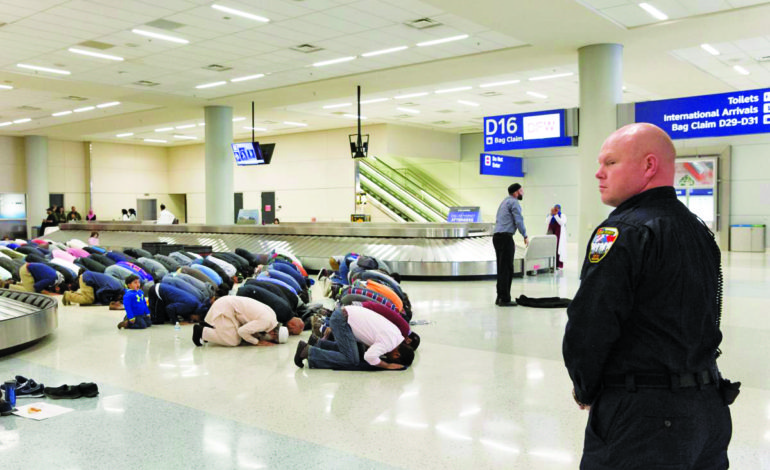WASHINGTON, D.C. — The Department of Homeland Security called on authorities in a draft report from late January to continuously vet Sunni Muslims coming into the U.S. who fit an “at-risk” demographic profile.
The report, obtained by Foreign Policy Magazine, reviews 25 terrorist attacks in the United States between October 2001 and December 2017, concluding there would be “great value for the United States government in dedicating resources to continuously evaluate persons of interest” and suggesting that immigrants to the United States be tracked on a “long-term basis.”
If implemented, it would represent a vast expansion of the Trump administration’s policies aimed at many Muslim immigrants, from those trying to enter the United States to those already legally in the country, including permanent residents.
The report was produced at the request of U.S. Customs and Border Protection (CBP) Commissioner Kevin McAleenan on Jan. 22, according to internal DHS correspondence reviewed by FP. The report says that its goal is to “inform United States foreign visitor screening, immigrant vetting and on-going evaluations of United States-based individuals who might have a higher risk of becoming radicalized and conducting a violent attack.”
In the report, CBP identifies a broad swath of Sunni Muslim residents as being potentially “vulnerable to terrorist narratives,” based on a set of risk indicators, such as being young, male and having national origins in “the Middle East, South Asia or Africa.”
In response to queries from FP, a CBP spokesperson called the report a “first draft” that has already been changed, is still undergoing revisions and “therefore does not reflect CBP’s policy on this matter.”
The CBP recommendations wouldn’t be the first proposal to increase the ongoing monitoring of foreigners in the last year, since Immigration and Customs Enforcement (ICE) announced plans to build an “extreme vetting” data-mining program to continuously monitor a select group of high-risk visa holders.
The CBP draft report also comes on the heels of a controversial study by DHS and the Justice Department, released on Jan. 16, which claimed that three out of every four individuals convicted of international terrorism or terrorism-related offenses were immigrants. Critics have charged that the joint report had serious methodological issues and cherry-picked data to justify the Trump administration’s restrictive immigration policies.
The draft CBP report shares similar methodological problems, according to current and former DHS officials who spoke to FP.






Leave a Reply